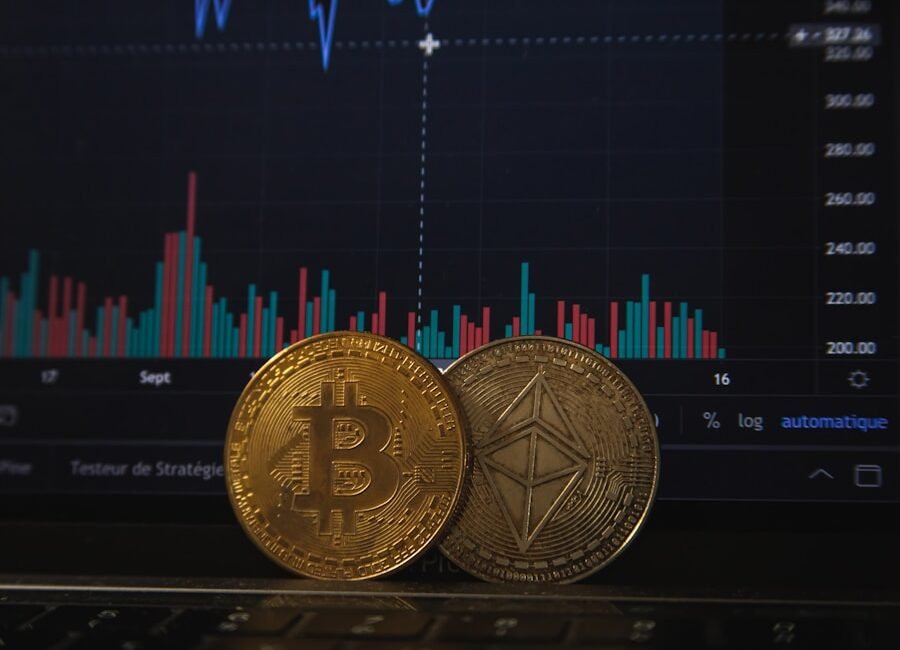Blockchain technology has been making waves in various industries, and its impact on supply chain security is no exception. At its core, blockchain is a decentralized, distributed ledger that records transactions across a network of computers. Each transaction is stored in a block, and these blocks are linked together in a chain, hence the name “blockchain.” What sets blockchain apart is its immutability and transparency, as each block is cryptographically linked to the previous one, making it nearly impossible to alter or tamper with the data. This technology has the potential to revolutionize supply chain management by providing a secure and transparent way to track the movement of goods from their origin to the end consumer.
The Impact of Blockchain on Supply Chain Security
One of the most significant impacts of blockchain on supply chain security is its ability to prevent fraud and counterfeiting. With traditional supply chains, it can be challenging to verify the authenticity of products and ensure that they have not been tampered with or replaced. However, with blockchain, each step of the supply chain can be recorded and verified, providing a transparent and tamper-proof record of the product’s journey. This not only helps to prevent counterfeit products from entering the supply chain but also ensures that consumers are receiving genuine and safe products. Additionally, blockchain can also help to prevent unauthorized access to sensitive data and reduce the risk of data breaches, as the decentralized nature of the technology makes it difficult for hackers to compromise the entire network.
Another impact of blockchain on supply chain security is its ability to streamline and automate processes, reducing the risk of human error and fraud. Smart contracts, which are self-executing contracts with the terms of the agreement directly written into code, can be used to automate various aspects of supply chain management, such as payments, shipments, and quality control. This not only reduces the need for intermediaries and manual oversight but also ensures that all parties involved in the supply chain adhere to the agreed-upon terms. By automating these processes, blockchain can help to minimize the risk of fraud and ensure that transactions are executed accurately and efficiently.
How Blockchain Ensures Transparency and Traceability in Supply Chains
Transparency and traceability are essential components of a secure and efficient supply chain, and blockchain technology excels in providing both. With blockchain, every transaction and movement of goods can be recorded and verified in real-time, providing a transparent and tamper-proof record of the product’s journey. This level of transparency not only helps to build trust between all parties involved in the supply chain but also allows for greater visibility into the movement of goods, enabling companies to identify and address any issues or bottlenecks quickly.
Furthermore, blockchain ensures traceability by providing a complete and immutable record of a product’s origin, manufacturing process, and distribution. This is particularly crucial in industries such as food and pharmaceuticals, where traceability is essential for ensuring product safety and compliance with regulations. By leveraging blockchain technology, companies can track the provenance of their products from farm to table, providing consumers with peace of mind and enabling swift action in the event of a product recall or contamination.
The Role of Smart Contracts in Supply Chain Management
Smart contracts play a pivotal role in revolutionizing supply chain management by automating and streamlining various processes. These self-executing contracts are written in code and automatically enforce the terms of an agreement when certain conditions are met. In the context of supply chains, smart contracts can be used to automate payments, verify the authenticity of products, and ensure compliance with regulations. For example, when a shipment reaches its destination, a smart contract can automatically trigger payment to the supplier, eliminating the need for manual invoicing and reducing the risk of payment disputes.
Additionally, smart contracts can also be used to verify the authenticity of products by linking unique identifiers, such as QR codes or RFID tags, to the blockchain. This allows consumers and businesses to verify the origin and authenticity of a product by scanning its unique identifier, providing an added layer of security and trust in the supply chain. Furthermore, smart contracts can help to ensure compliance with regulations by automatically enforcing quality control standards and verifying that products meet certain criteria before they are shipped or sold.
Case Studies: Successful Implementation of Blockchain in Supply Chains
Several companies have successfully implemented blockchain technology in their supply chains, reaping the benefits of increased security, transparency, and efficiency. For example, Walmart has partnered with IBM to implement blockchain in its food supply chain, enabling real-time traceability of products from farm to store. By leveraging blockchain technology, Walmart can quickly identify the source of contaminated products and remove them from shelves, reducing the risk of foodborne illnesses and improving consumer safety.
Another example is Maersk, a global shipping company that has implemented blockchain to streamline its logistics operations. By using blockchain technology, Maersk can track the movement of shipping containers in real-time, reducing paperwork and administrative overhead while ensuring that shipments are delivered securely and on time. This has not only improved Maersk’s operational efficiency but also enhanced security by providing a transparent and tamper-proof record of each shipment’s journey.
Overcoming Challenges and Barriers to Adopting Blockchain in Supply Chains
While blockchain technology holds great promise for supply chain security, there are several challenges and barriers that companies must overcome when adopting this technology. One of the main challenges is interoperability, as different blockchain platforms may not be compatible with each other. This can make it difficult for companies to collaborate with partners who use different blockchain solutions, hindering the seamless flow of information across the entire supply chain.
Another challenge is scalability, as blockchain networks may struggle to handle large volumes of transactions without compromising speed and efficiency. As supply chains involve numerous transactions and data points, it is crucial for blockchain networks to be able to scale effectively to accommodate these demands without sacrificing performance.
Furthermore, there are also concerns about data privacy and security when using blockchain technology. While blockchain provides a secure and tamper-proof record of transactions, companies must ensure that sensitive information is protected from unauthorized access and breaches. Additionally, there may be regulatory hurdles that companies need to navigate when implementing blockchain in their supply chains, as some jurisdictions may have specific requirements or restrictions related to data storage and sharing.
The Future of Blockchain in Supply Chain Security
Looking ahead, the future of blockchain in supply chain security looks promising as more companies recognize the potential benefits of this technology. As blockchain continues to evolve and mature, we can expect to see greater interoperability between different blockchain platforms, enabling seamless collaboration across supply chains. Additionally, advancements in scalability and performance will make it easier for companies to handle large volumes of transactions while maintaining speed and efficiency.
Moreover, as companies become more adept at addressing data privacy and security concerns related to blockchain technology, we can expect to see greater adoption of this technology in supply chains. By implementing robust security measures and compliance with regulations, companies can leverage blockchain to enhance transparency, traceability, and security in their supply chains while protecting sensitive information from unauthorized access.
In conclusion, blockchain technology has the potential to revolutionize supply chain security by providing a secure and transparent way to track the movement of goods from their origin to the end consumer. By leveraging blockchain’s immutability and transparency, companies can prevent fraud and counterfeiting while ensuring traceability and compliance with regulations. With the continued advancement of blockchain technology and ongoing efforts to address challenges related to interoperability, scalability, and data privacy, we can expect to see widespread adoption of blockchain in supply chains in the years to come. As companies embrace this technology, they will be able to enhance security, efficiency, and trust across their supply chains while delivering greater value to consumers.








